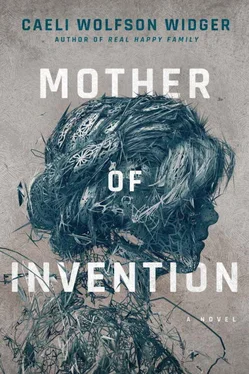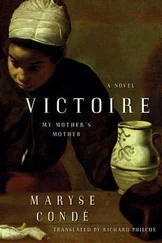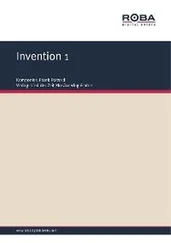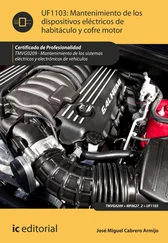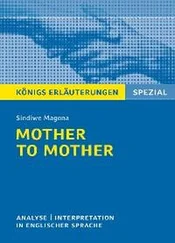Tessa normally skipped such ridiculous showcases, which made her feel excessively mature and unwhimsical, but several other major execs from buzzy Valley companies like Loop were rumored to be attending, so she decided to make an exception. Plus, she was feeling good. The IPO would solidify her place as a serious player in biotech—not an easy spot for a woman to capture—and spike her net worth on paper by a staggering eight-figure sum.
She’d gone to the robot model party with Kate Lavek, who promptly disappeared into the attractive, youngish crowd clad in the sort of low-key, skater-chic outfits that suggested high-balance bank accounts. Kate seemed to know everyone under thirty-five in the Bay Area. Tessa settled alone near the bar, where she was sipping her requisite bourbon and scanning the room, plotting her first introduction, when a tall, floppy-haired young man approached her.
“Tessa Callahan,” he said. “Queen of the Loopers,” using the term the media had assigned to Tessa’s employees.
“Should I know you?” Tessa said.
“You sound suspicious.”
“I am,” she said lightly. The bourbon and her impending IPO had giddied her mood.
“Mutual suspicion is a gateway to mutual trust.”
“I think you just made that up.”
“Nope. Napoleon. I’m Luke Zimmerman, by the way.”
“Zimmerman? As in—”
“Yes. Reed was my dad.”
“Your father is missed,” said Tessa. Reed had been a casual acquaintance of hers and she’d been as shocked as the rest of Silicon Valley to learn of his sudden death.
“Speak for yourself,” said Luke.
A server whizzed by on her skates, glossy humanlike hair (horse, actually, Tessa had read) fanning behind her. She stopped on a dime to lower her tray of fresh drinks to a group of tech bros in graphic tees and Vans—Tessa knew the look well—and then pushed off in a three-sixty twirl, somehow managing not to crash into anyone.
“Smart ghost in that machine,” Luke said, nodding to the bot.
“I’m impressed,” said Tessa. “Grudgingly.”
“Same,” Luke said to Tessa. “Hipster nonsense like this is why I want to move out of this city.”
“That’s why I just did,” said Tessa.
“Seriously?” He turned his focus on her like a tuner; she suddenly felt as if she were the only visible person in the room. “Where?”
“Atherton. I’m not ironic enough for San Francisco.”
“To the post-ironic world,” he said, clinking his water glass to her bourbon.
“To adulthood,” she said, clinking back. “Except you barely look like an adult.”
“You should see inside me,” he said. “I’m approximately seventy-two.”
“I’ll take your word for it,” she said, and felt something like a flush come over her. There was a disarming earnestness in the way he’d said you should see inside me , as if it were an actual invitation. But also a hint of aggression. She liked it.
“I’m working on something I thought might interest you,” said Luke.
“Go on.”
“You’ll have to sign an NDA first.”
“I can read and drink.” She extended her hand.
“I don’t have one on me. But my office is pretty close to here.”
She texted Kate: Already hit my quota for bourbon and bots. See you tomorrow.
Then Tessa and Luke stepped out into the foggy San Francisco evening.
Luke’s “office,” south of Market, was little more than a garage with blackout shades over the few small windows, the space inside aglow with computer monitors and lamps emitting underwater shades of blue and green. A painted whale covered one of the walls. The only seating, aside from desk chairs, came from a few large hay bales scattered around the room. The other walls were mounted with large whiteboards, scrawled with numbers and notes and code. Tessa couldn’t make sense of any of it, apart from TEAT written in large block letters at the top.
“What’s TEAT?” she asked.
“It’s why I brought you here,” he said. “But I’ll get to that later.” He extended a palm and made a sweeping gesture around the room. “This is just my think-space. My company has a large lab in Daly City.” He gestured to the hay. “Have a seat.”
“Your company?” Tessa eased onto one of the bales. The straw poked through the thin wool-blend of her black trousers.
Luke didn’t answer. He’d crossed the room to a small open kitchen along the far wall and was assessing the contents of the refrigerator. Then he shut it with a clang and joined her at the hay with a glass bottle of arterial-colored liquid in one hand and a sheaf of papers in the other.
“Beet juice?” He extended the bottle to her.
“I’m good, but thanks.”
“Well, here’s your NDA then. I’ll tell you all about my company after you’ve signed. Take your time.”
He sat down on a hay bale facing her and sipped the beet juice while Tessa read and signed the document. After she handed it back to him, he folded it into his pocket and fell silent, knees on his elbows, as if considering an important decision.
“Okay. My company is called ZimLabz. We’re committed to the most cutting-edge biotech research on the planet.”
“I’ve heard that before,” said Tessa.
“Wait. Listen. We’re working on a particular project. Highly confidential.” He tapped his temple. “No one but my staff has heard what I’m about to tell you.”
“I’m all ears.”
Luke began to talk. His voice had a languorous California drawl, surfer inflected, but his pitch was eloquent. As it gathered momentum, he sat up straight and his long fingers flew through the colored light, throwing shadows on the walls.
Tessa listened.
The more he spoke, the more awake she began to feel. His sentences felt extracted from somewhere deep inside herself.
Women are tethered by their own biology… Human reproduction is the ultimate weapon of the patriarchy… Technology is a feminist weapon…
His idea was outrageous. A nine-week pregnancy, modeled after the accelerated gestation phenomenon of the late nineties and early aughts. AG was the inspiration, but TEAT would be a new and improved version of that unexplained anomaly, adjusted and controlled by the world’s greatest experts in genetics and biotechnology.
“Think of AG as the organic fruit, and TEAT as the GMO fruit,” Luke said. “But the best kind of GMO.”
“Sounds like a PR nightmare.”
Luke nodded. “Point taken. It’s a bad analogy. But you get my point.”
“I do.”
TEAT would be offered as an elective add-on to IVF, he explained. Possibly, in the future, it would be available alongside natural conception as well, perhaps in a format as simple as a pill.
Tessa sat on the edge of her hay bale, captivated. The idea was wild and impossible and mind-blowing. She was half-incredulous, half-smitten by it. She had a million questions. But her gut told her TEAT could be perfectly symbiotic with the work she was doing at Seahorse.
“Look, I’m intrigued,” she said, when he finally paused. “This is… radical stuff. But why are you telling me all this proprietary information?”
“Isn’t it obvious? I need the world’s best minds in biotech on board with this. And I have them, at least on the clinical and research front. But I still need someone on the business side. Someone who’s overseen the build-out of transgressive products from scratch and made them crazy successful.”
Tessa suppressed a smile. “I may know someone like that.”
“I’ve heard about what you’re doing at Seahorse Solutions. The proxy nursing device, the virtual separation-reducer. Plus all those genius accessories that make pregnancy less burdensome. I think it’s genius.”
Читать дальше
